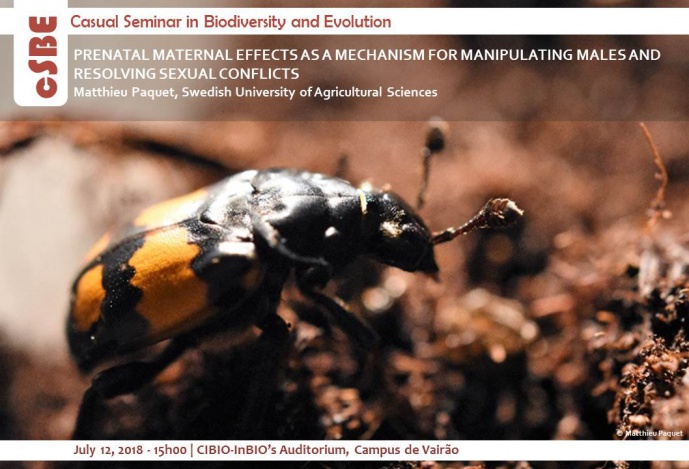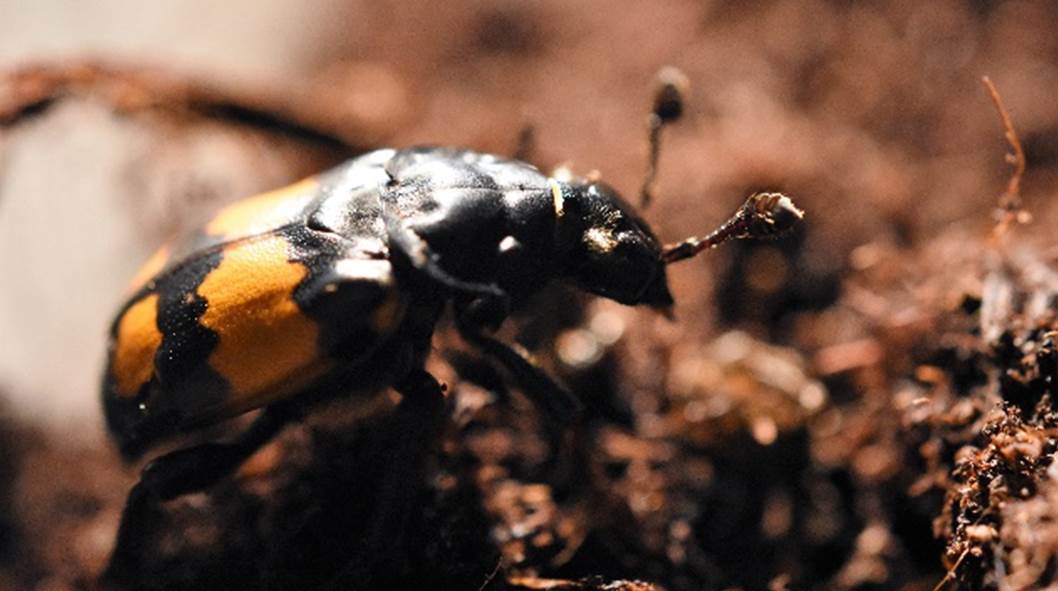PRENATAL MATERNAL EFFECTS AS A MECHANISM FOR MANIPULATING MALES AND RESOLVING SEXUAL CONFLICTS

CASUAL SEMINAR IN BIODIVERSITY AND EVOLUTION

In species with biparental care, there is sexual conflict as each parent is under selection to minimize its personal effort by shifting as much as possible of the workload over to the other parent. Most theoretical and empirical work on the resolution of this conflict has focused on symmetrical strategies used by both parents, such as negotiation. However, because females produce the eggs, they might use their control over egg production as a mechanism for manipulating male behaviour via maternal effects that alter offspring phenotype. To test this hypothesis, we manipulated environmental conditions experienced by females before laying, performed cross-fostering experiments, and monitored the subsequent effects of prenatal conditions on offspring and parental performance in the burying beetle Nicrophorus vespilloides. Additionally, we aimed to identify the potential mechanisms underlying such effects, notably whether maternal deposition of hormones in eggs and offspring begging behaviour were affected by the studied prenatal conditions. Our results provide experimental evidence that females can alter male behaviour during breeding by adjusting maternal effects according to prenatal conditions and call for more studies investigating the role of prenatal parental effects in family interactions.
Matthieu Paquet is currently a post-doctoral fellow at the Swedish University of Agricultural Sciences in Uppsala. He is particularly interested in parental effects in response to environmental changes, their role in family interactions and their consequences for life history traits and population dynamics. He also likes music and pasta.
[Host: Rita Covas, Animal Sociality]
Image credits: Matthieu Paquet